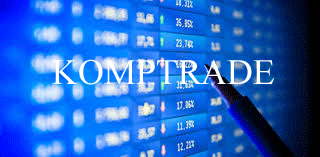The price cap on Russian refined fuels is validated.
- John P.

- Feb 19, 2023
- 2 min read
The price cap on Russian refined fuels will disrupt trade, particularly in Europe.

The EU ban on imports of Russian refined oil products, including diesel and paraffin, will disrupt global flows when it comes into force on 5 February 2023, ahead of a complete ban on these products in Europe.
Although Western sanctions may force Russia to cut crude oil production and refining, further tightening global supply, some analysts said the product ban could ultimately have little impact on overall availability.
Online crude oil price: Brent and WTI market
The EU has proposed a $100 per barrel cap on diesel and a $45 per barrel cap on discounted products such as fuel oil, but member states have yet to agree on these levels, with states aiming for an agreement on Friday.
Endorsed by the wealthy G7 countries, the European Commission and Australia, the product ban follows a similar measure they implemented on 5 December, banning the sale, insurance and transportation of Russian crude oil unless it is sold below a $60 cap.
According to Ian Moore of Bernstein, the problem will be more of a logistical challenge than a supply one. While the ban would leave Russia with more crude to export, there may not be enough destinations to export the surplus to, so Russia may have to cut production by 5-10%, while China and India have strong refining capacity and are also exporters of refined products.
The biggest problem may be for Russia to find other buyers, as China and India, which have been keen to buy its discounted crude, have plenty of refining capacity and are exporters of oil products. In fact, this may not necessarily be a handicap for Russia, which can apply large discounts on these products and make them very attractive to non-sanctioning countries.
In an attempt to compensate for the lack of European buyers, Russia increased its diesel deliveries to African and Mediterranean ports in January.
But a lack of tankers to transport the products and a potential lack of demand could make it harder for Russia to divert refined fuels to third markets.
Europe has turned to producers in Asia, the Middle East and the US to diversify its supply sources, but shipping will be more expensive due to longer shipping times.
For the time being, supply remains plentiful in Europe, which is heavily dependent on Russian diesel imports as traders have built up stocks in anticipation of Western restrictions.
The price cap on refined products is still unclear, as their pricing is far more complex than that of crude oil and is dictated by differences in quality, determined by sulphur and metal levels.






Comments